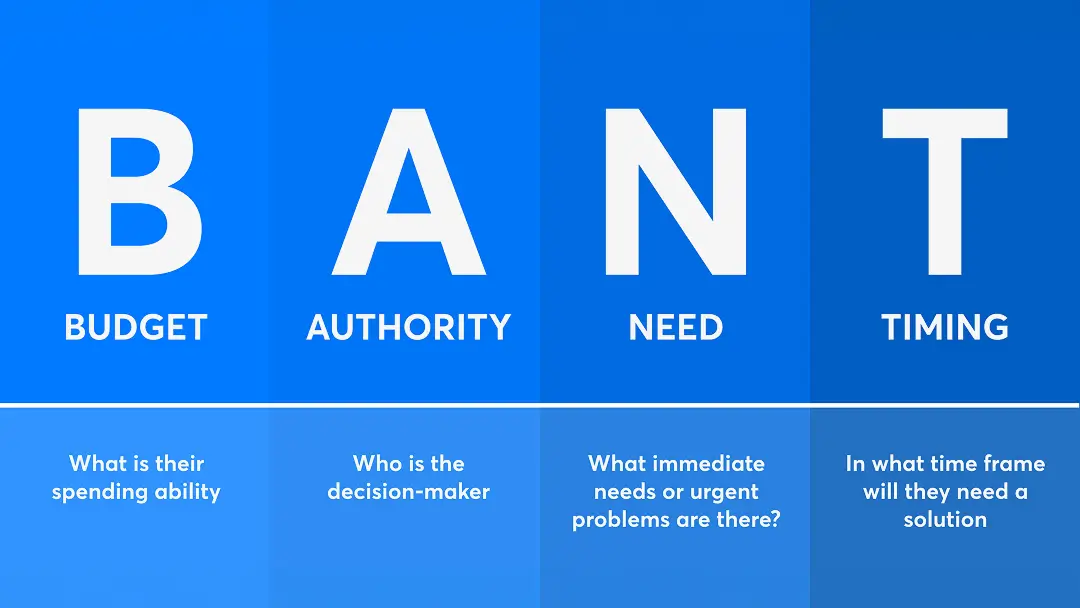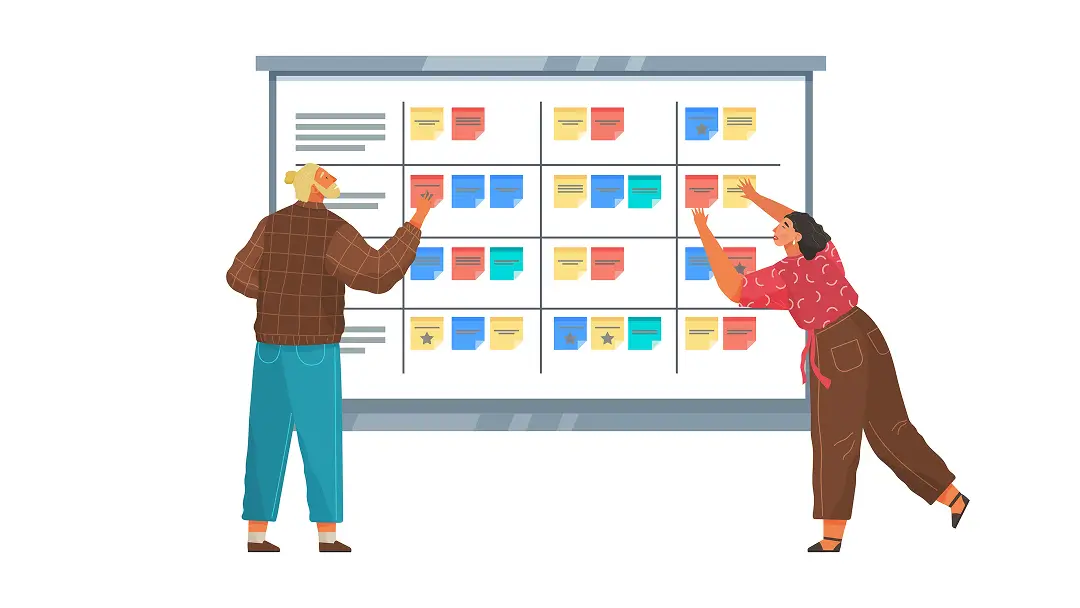35 Effective Sales Discovery Questions To Close More Deals

A discovery call is the first opportunity for sales representatives to dive head-first into a prospect’s business. And it’s the moment to get a feel for whether a sale is in the cards or not.
These calls aren’t about going over a sales pitch or closing deals — all that happens after a successful discovery call. Instead, it’s a chance to ask thoughtful questions that build rapport and trust, reveal pain points, and assure clients they're not simply numbers on your monthly quota.
The best sales discovery questions are a balancing act. They’re probing without being pushy and direct without crossing boundaries. Not sure how to build out your list of questions to ask? Here are 35 to get you started.
What’s a sales discovery call?
A sales discovery call is the initial conversation where a salesperson learns about the needs, challenges, and goals of a prospective client. The primary goal is to build rapport and trust while gauging whether the product or service being sold aligns with the prospect’s needs.
Before initiating the call, the sales rep typically conducts thorough research on the prospect. This part of the process might include reviewing publicly available details (like on a company website or LinkedIn) and using customer relationship management (CRM) systems and databases to narrow down the prospects most likely to engage.
During the call, the salesperson builds on this preparation by asking targeted, open-ended questions. The best questions uncover the prospect’s specific pain points, priorities, and decision-making process. For example, a deep dive into their current challenges might offer a natural transition to their ideal outcomes.
A successful discovery call sets the tone for the rest of the B2B sales process. Building a bridge rather than pushing a sales pitch leads to better proposals, sales demos, or follow-up conversations, getting you closer to closing deals.
35 discovery meeting questions
Design a discovery call checklist that balances a conversational tone with questions that cut straight to the point. To help you build momentum, here are 35 sales discovery question examples to consider. Remember, you don’t have to ask them all. Curate a list of favorites that work for both your product and your potential clients.
Uncover pain points
Your job is to solve problems. Accomplishing that means you need an intimate understanding of your prospect’s current pain points.
- What are the biggest pain points your company currently faces?
- Can you share the biggest challenges you need to solve?
- How do these roadblocks impact your business or team performance?
- What steps have you taken to solve this problem?
- Are there recurring roadblocks you want to fix once and for all?
Understand the prospect’s goals
After discussing the biggest challenges, focus on open-ended questions that reveal the light at the end of the tunnel.
- What do you hope to achieve by solving the problem?
- How will overcoming this challenge help your organization?
- What are the outcomes you hope to achieve?
- What do you hope to change about your current process?
- Are there specific metrics you want to achieve?
Determine urgency and timelines
Neither you nor the client can tackle everything at once. These discovery call questions help build a list of priorities.
- How quickly do you need to solve this problem?
- What can happen if you don’t overcome these pain points now?
- Do you have any deadlines that impact our agenda?
- What are the biggest challenges you need to prioritize right now?
- Is there anything on your agenda competing for your attention?
Establish next steps and the decision-making process
Ask questions that identify stakeholders and help establish where the prospect is in the sales process.
- Who is involved in making final decisions and approving next steps?
- Do we need to include other stakeholders in the conversation?
- Are you considering any other solutions or taking other sales calls?
- What’s the process to determine next steps?
- How can I best demonstrate value to all the stakeholders?
Identify roadblocks and challenges
Reaching a solution should be smooth sailing. One way to keep the waters clear is to plan for every possible pain point and challenge.
- What internal roadblocks could slow us down?
- Are there any external challenges we need to take into account?
- Have you faced challenges trying to solve this problem before?
- Are there any roadblocks that prevent us from moving on right now?
- What support do you need to overcome your biggest challenges?
Establish fit and next steps
One way for a sales rep to understand if a partnership is promising is simply to ask. Here are questions to ask prospects to determine if they're buyers.
- What convinced you to have this conversation about our services?
- What is on your checklist to determine the right fit?
- How can I help you establish whether this solution is right for you?
- Do you need any additional information to move forward, like a demo or formal sales pitch?
- What action items would you like to prioritize following this call?
Build momentum
During a discovery call, you don’t close a deal. But you can build momentum toward a successful sale. Here are questions to ask that will keep the conversation moving.
- How do you imagine us working together to solve this problem?
- What would you like the next steps to look like?
- What do you and other decision-makers value most in a business partner?
- How can our sales team make the transition to implementation as smooth as possible?
- Is there anything we didn’t cover in this conversation that’s important to your decision-making process?
6 tips for running a successful discovery sales call
A successful call depends on more than a comprehensive list of discovery meeting questions. From researching prospects to scratching closed-ended questions from your list, here are six essential tips for a successful chat:
1. Research the prospect
A cold call doesn’t have to mean going in with zero information about your prospect. Successful sales reps know that preparation is key — even if you can only find the bare basics. Discovery calls help you uncover a prospective client’s business model, pain points, and new developments, but preparation leads to a more engaging conversation.
2. Prioritize quality over quantity
Don’t overwhelm your buyer. Ask open-ended questions and creative queries that target your discovery goals and encourage thoughtful responses. This uncovers deep insights while keeping the conversation engaging.
3. Avoid closed-ended questions
Closed-ended questions are a surefire way to steer the conversation nowhere. Successful salespeople avoid simple “yes” and “no” questions, which dull the conversation and don’t encourage in-depth answers.
4. Practice active listening
Good sales reps don’t just know how to deliver a convincing sales pitch to a prospect. They understand the value of listening. Ask questions, then pay attention to how a prospect responds through body language, voice tone, and eye contact. For video or phone calls, listen for moments of hesitation or changes in pace to see what you can learn about their feelings as they answer. This helps you gauge your prospect’s interest and pivot accordingly.
5. Build trust
The sales discovery call isn’t the time to deliver a sales pitch or product demo. This is your moment to build rapport. Think of your prospect as a possible partner rather than a buyer. Avoid hard-sell strategies and focus on identifying solutions.
6. Follow up with clear action items
At the end of a discovery call, recap the pain points and solutions and outline clear action items for next steps and timelines. With Otter.ai, you can automatically summarize, create action items, and even measure sentiment — highlighting key takeaways so you can focus on keeping the conversation moving.
Seal the deal: Otter makes it easy
Stay focused on building rapport and uncovering insights by letting Otter handle the notetaking. Spending less time jotting down details and more time asking thoughtful follow-up questions demonstrates genuine interest and professionalism.
Let Otter worry about capturing every word seamlessly and automating next steps. You keep your eyes on the prize: closing deals.




















